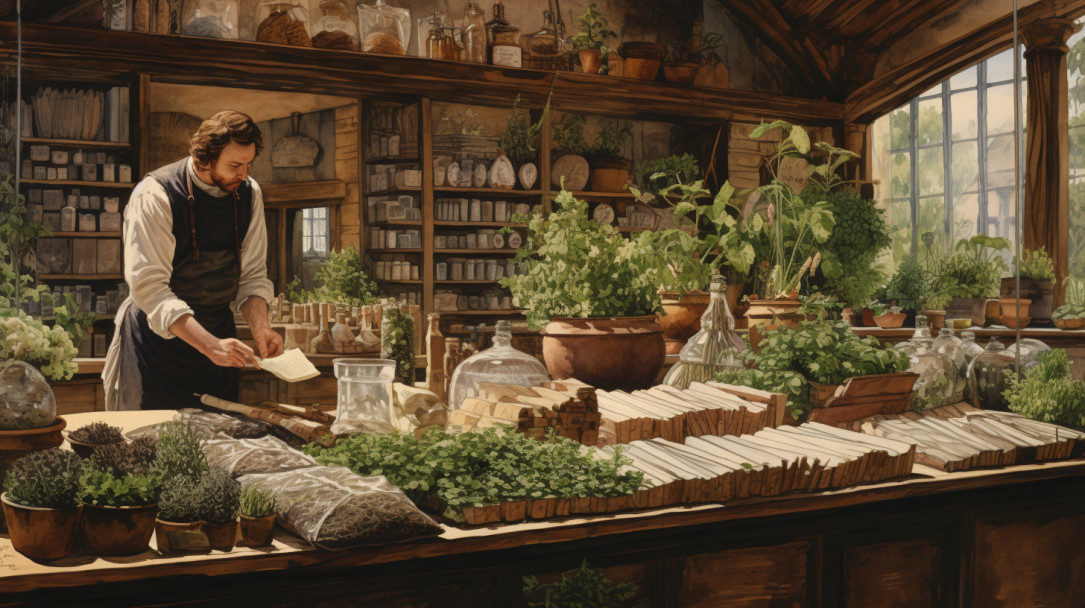In an era dominated by groundbreaking medical advancements and cutting-edge technologies, it is easy to overlook the ancient wisdom that has sustained humanity’s well-being for centuries. Traditional herbology, an integral part of many cultures around the world, holds immense importance in filling the gaps that arise within modern medicine. By drawing on centuries-old knowledge, traditional herbology offers a holistic approach to health and well-being, addressing aspects that often elude the realm of modern medicine. Let us embark on a journey to understand the pivotal role of traditional herbology in bridging the gaps and nurturing the delicate balance between the human body and nature.
Nature’s Pharmacy
Since time immemorial, humans have relied on the bounties of nature for sustenance and healing. Traditional herbology is a treasure trove of knowledge, passed down through generations, revealing the medicinal properties of various plants and herbs. Unlike modern medicine, which often isolates and synthesizes specific compounds, traditional herbology embraces the inherent complexity of nature. This holistic approach acknowledges that the synergy of various components within a plant contributes to its therapeutic effects, enabling a more comprehensive understanding of the healing process.
Individualized Treatment
One of the key areas where traditional herbology excels is in the recognition of individual uniqueness. Modern medicine often focuses on standardized treatments that treat symptoms rather than considering the intricate interplay of an individual’s constitution, lifestyle, and environment. Traditional herbology, on the other hand, recognizes that each person is unique and requires a tailored approach to achieve optimal health. By employing various diagnostic techniques, such as pulse and tongue examination, traditional herbologists gain insights into the imbalances within a person’s body and prescribe personalized herbal remedies to restore harmony.
Preventive Care and Long-Term Wellness
While modern medicine excels in acute care and emergency situations, it often falls short when it comes to preventive care and long-term wellness. Traditional herbology places great emphasis on maintaining overall well-being, preventing imbalances, and strengthening the body’s natural defense mechanisms. Through the use of medicinal herbs, dietary adjustments, and lifestyle modifications, traditional herbology empowers individuals to take an active role in their own health. By addressing the root causes of ailments and fostering balance, traditional herbology helps to prevent the development of chronic diseases, thus contributing to the overall health of individuals and communities.
Complementary Approach
Rather than perceiving traditional herbology and modern medicine as opposing forces, it is essential to recognize the value of integration and collaboration. Both systems possess unique strengths that, when combined, can enhance patient care and bridge existing gaps. Traditional herbology, with its rich history and holistic approach, can offer support in areas where modern medicine faces limitations. By integrating traditional herbology into modern healthcare practices, healthcare providers can expand their treatment options, improve patient outcomes, and offer a more comprehensive approach to healing.
Preserving Traditional Knowledge
In an age of rapid scientific advancements, it is crucial not to disregard the accumulated wisdom of our ancestors. Traditional herbology embodies the wisdom of generations, rooted in deep observation, experimentation, and an intimate relationship with nature. By recognizing and preserving this knowledge, we ensure that future generations can benefit from the profound insights and time-tested remedies passed down to us. Collaboration between traditional healers, modern medical practitioners, and researchers can facilitate the integration of traditional herbology into evidence-based medicine, validating its efficacy and ensuring its continued relevance.
In conclusion
Traditional herbology plays a vital role in addressing the gaps that modern medicine faces. By embracing the wisdom of ancient cultures, traditional herbology offers a holistic approach to health, personalized treatments, preventive care, and long-term wellness. It complements modern medicine by filling in the gaps that arise from its standardized approach. Integrating traditional herbology into modern healthcare practices holds the potential to revolutionize patient care and foster a deeper connection between humanity and nature. Let us not forget the vast treasures hidden in the realm of traditional herbology, for they hold the key to unlocking a healthier and more harmonious future.
